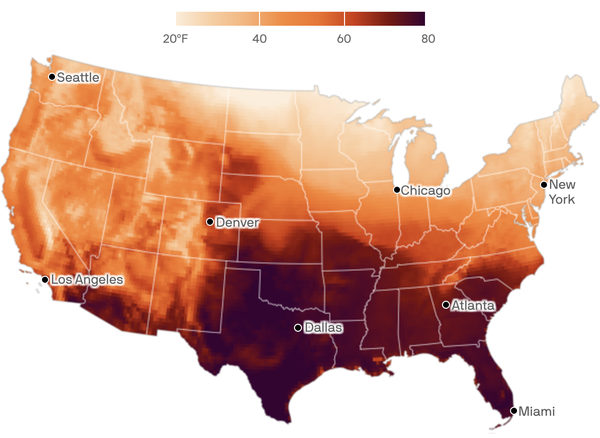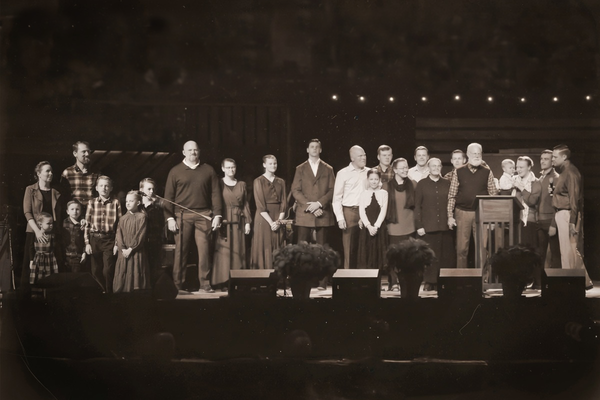Shopping on Credit or Stewarding a Trust

A Brief Reflection on Stewardship, Grace, and True Godliness
I was sitting with a brother this week, talking about finances—how even this most practical realm must come under God’s grace and dominion in our lives.
From my perspective, there are two basic approaches to finances—one wrong and one right.
The first begins with desire and then baptizes it as need. It measures provision by what it has already decided it must have, then stretches to meet those self-determined “needs,” assuming that somehow the paying will work itself out later—because, after all, “these are legitimate needs.” It is the mindset that spends first and prays later, living on credit, both financially and spiritually.
The second begins not with desire, but with trust. It sees God as Provider—the source not only of the finances, but of the limits, opportunities, and timing that shape them. This heart rests in the assurance that “your Father knows that you need these things” (Luke 12:30). His provision—not our self-appraisal of our needs—defines our boundaries.
Within those boundaries lies His investment of grace. And from that investment flows our calling: to steward what He gives faithfully, to grow it, multiply it, and make it fruitful—not for ego, luxury, or consumption, but for relationships, discipleship, and transcendent purpose that rises to the level of kingdom participation.
In short, either we accept His provision as the boundary of His wisdom and steward accordingly, or we decide for ourselves what we “should have by now,” comparing, striving, and hoping that our indulgences will somehow be covered by a sugar-daddy version of God who funds our presumption.
But the principle reaches far beyond money. It is the pattern for every treasure He entrusts to us—our time, our opportunities, our callings, our gifts, and our love. All of these must come under His lordship, that they might become not extensions of our appetites, but expressions of His kingdom.
Two Ways to See Life
This contrast between the shopper and the steward doesn’t stop with money—it runs through the whole of life.
There are, in truth, two ways to live.
One is to decide for yourself what you should have—and then grasp after it, always trying to make the payment later. It’s the mindset that treats life like a store: taking God’s blessings off the shelves of your expectations and swiping them all on credit.
The other is to see God as Provider—“supplying all your needs according to His riches in glory” (Phil. 4:19). In this view, every good thing becomes a trust from His hand, not a trophy of your ambition. It’s an attitude hat says with the psalmist’s confession: “The boundary lines have fallen for me in pleasant places; surely I have a delightful inheritance” (Ps. 16:6). It’s the posture that receives, not grabs; that tends, not spends. Then every good thing becomes a gift from His hand, entrusted to your care, with the charge to steward it into the fullest measure it can become.
Regard it.
Invest it.
Share it.
Not into napkins—but into lives that multiply the gift given.
For the willingness to take the small and make it more is what God marks as eligible for greater opportunity and trust:
“You were faithful with a few things; I will put you in charge of many things” (Matt. 25:23).
Has God inspired you, corrected you, or spoken a word of promise to your heart?
What have you done with it?
Has He gifted you—given you grace to solve problems, to create, to build, to lead? Have you used that grace to grow His kingdom? Have you mentored another into a similar gift?
The blessing entrusted to your care is meant to multiply—thirty, sixty, or a hundredfold (Mark 4:20). But how easily we share our gifts with those who bury them in a napkin (Luke 19:20)—or worse, bury them ourselves, waiting for “someday” to be faithful.
Faithfulness doesn’t begin when we’re given more; it begins when we make more of what we’ve already been given.
The Attitude of Gratitude
The attitude of gratitude knows what it has—and capitalizes on it.
The attitude of fear and scarcity obsesses over what it lacks and dreads what might be asked.
The fearful servant in Jesus’ parable was called “wicked and lazy” (Matt. 25:26) and was cast “into the outer darkness; in that place there will be weeping and gnashing of teeth” (Matt. 25:30). But the faithful one was invited to “enter the joy of your master” (Matt. 25:21)—to step into the warmth of His approval:
“Well done, good and faithful servant.”
That is the place where one lives in the day-beam of God’s smile.
The grateful heart feels like the recipient of undeserved grace—and lives to repay love with love:
“In view of the mercies of God, [it] presents [itself] as a living and holy sacrifice, acceptable to God” (Rom. 12:1).
“Since we have gifts that differ according to the grace given to us, each of us is to use them accordingly” (Rom. 12:6).
And this—this willing, joyful exercise of grace—is how love becomes without hypocrisy (Rom. 12:9).
Hypocritical love may feel deeply—it may have strong affections—but it never finds the courage to act. It speaks warmly, but rarely sacrifices. It never turns compassion into a word or action that heals:
“A word spoken at the right time . . . like apples of gold in settings of silver” (Prov. 25:11), or “a word that gives grace to those who hear” (Eph. 4:29).
Instead, it critiques rather than builds, shares “concerns” with those who cannot change anything, and invests its insights into a backyard napkin.
The Way of Agapē
But the one who has let agapē—God’s love—possess the soul, knows how to act.
They know how to “feed My lambs” (John 21:15), how to “strengthen your brothers” (Luke 22:32), how to stand with the rest when it’s time to take a stand—and how to gird with a towel when it’s time to serve (John 13:4–5).
They know how to wash the dust of the world from the feet of the saints, proving by that very act that “whoever wishes to be first among you shall be slave of all” (Mark 10:44).
This is love without hypocrisy—
love that works,
love that invests,
love that multiplies.
- What has God entrusted to you—an insight, a word, a grace, a skill?
- Who have you drawn into that gift, trained, or strengthened because of it?
- Is your love practical, multiplying, alive—or folded away in a napkin?
Let us be found faithful in the small, that He may entrust to us the greater. And let us love—not in word or feeling only—but in deed and in truth.
Conclusion
Every realm of life—finances, time, gifts, and love itself—comes down to this single question: Who decides what is enough? The shopper lives by appetite, always spending tomorrow’s grace on today’s cravings, hoping that God will underwrite a self-made plan. The steward, however, lives by trust. He accepts both the bounty and the boundary of God’s provision as sacred. From faith in that provision, he works, multiplies, and gives.
The true economy of heaven runs not on grasping, but on gratitude—not on taking, but on tending. Those who understand this live free from the tyranny of “should have by now” and instead abide in the safety of the Father’s provision. Such lives become His investment in the world: demonstrating a love without hypocrisy, engaging as co-laborers in that which does not perish, and spreading a faith that multiplies as a groundswell of victory that overcomes the world—until the Master returns and says again, “Well done.”





